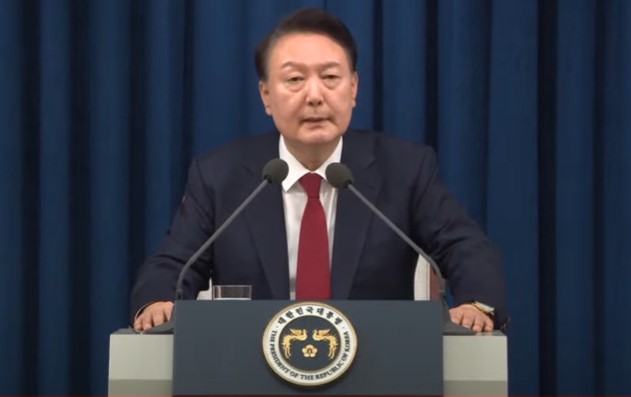SEOUL – In a historic first, a South Korean court issued an arrest warrant for impeached President Yoon Suk-yeol, marking the first time authorities sought to detain a sitting president. Following a request by the Joint Investigation Headquarters, the Seoul Western District Court approved the warrant, which is probing Yoon over allegations of insurrection and abuse of power related to his brief declaration of martial law earlier this year.
The Joint Investigation Headquarters, which includes personnel from the Corruption Investigation Office for High-ranking Officials (CIO), the police, and the Ministry of Defense, confirmed the court’s decision in a statement. “The arrest and search warrants for President Yoon Suk-yeol, requested by the Joint Investigation Headquarters, were issued” the statement read.
This unprecedented legal move is linked to Yoon’s controversial martial law decree, which sparked widespread public and political unrest. The president’s action came under intense scrutiny and led to an investigation into his conduct. The charges include insurrection and abuse of power, accusing Yoon of exceeding his presidential authority in an attempt to suppress political opposition.
The issuance of the arrest warrant signifies a critical moment in South Korea’s political history, with the potential to challenge the very foundations of executive power in the country. However, it remains unclear when authorities will attempt to execute the warrant. Yoon’s security detail has previously blocked investigators from carrying out search warrants at the presidential office compound and the official residence of the president, raising questions about the practical enforcement of the warrant.
This legal development is set to escalate tensions within South Korea’s already volatile political landscape, as President Yoon faces mounting opposition and legal battles. The investigation into his martial law decree is just one aspect of a broader controversy surrounding his presidency, which has been marked by public protests, political instability, and a growing divide between the executive and other branches of government. (zai)

